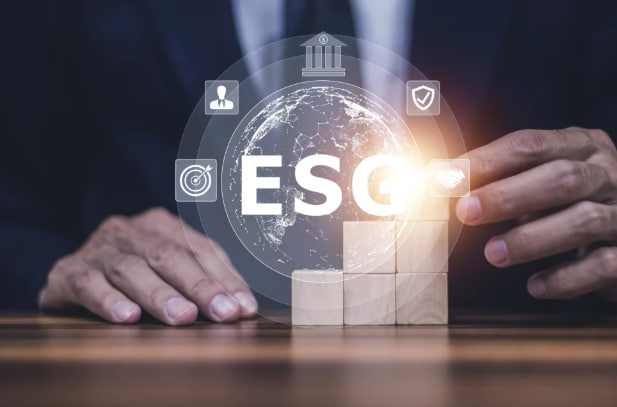ESG Consulting: New Opportunities and Challenges
How can your enterprise attain profitability while meeting sustainable accountability in a dynamic market?
ESG Consulting provides an integrated framework for evaluating and optimising corporate performance across ESG dimensions, thereby balancing financial goals with a positive impact.
These consultancies utilize global standards to enhance non-financial performance, ensure transparency, and mitigate operational/regulatory risks. Aligned with market trends and escalating mandates, ESG consulting is no longer optional; it is a mandate for long-term resilience and competitiveness.
The Growing Imperative of ESG Consulting for Corporations and Investors
ESG consulting is witnessing exponential growth, establishing itself as a core pillar of the global economic landscape. It has evolved from a discretionary strategy into an unavoidable business mandate for securing competitiveness and long-term viability, driven by intensified regulatory standards and evolving stakeholder expectations.
ESG consulting offers corporations an integrated roadmap to:
- De-risk Operations Proactively: Curtail exposure to environmental and social hazards, thereby minimizing associated costs.
- Drive Operational Excellence: Embed sustainable practices that drastically reduce waste and optimize resource consumption.
- Bolster Corporate Credibility: Cultivate trust with clients and communities by demonstrating a commitment to sustainability and social responsibility.
ESG: The Investor’s Value Multiplier
For investors, ESG consulting is crucial, strengthening investment calculus and maximizing returns by addressing both risk and opportunity:
I. Mitigating Investment Risk
- Identifying companies with inherent environmental, social, or governance flaws that could impair long-term financial stability.
- Preemptively avoiding entities vulnerable to legal penalties or fallout from non-sustainable conduct.
II. Unlocking Superior Returns
- Prioritizing high-performing ESG firms, which research confirms deliver superior long-term returns.
- Harnessing the rapid growth of the sustainable economy and clean energy markets.
III. Governance and Mandate Alignment
- Synchronizing investment portfolios with responsible investment mandates, notably the PRI (Principles for Responsible Investment).
- Meeting the increasing disclosure mandates and transparency requirements for sustainability reporting.
IV. Attracting Purpose-Driven Capital
- Catering to next-generation investors who prioritize investments with measurable social and environmental impact.
- Gaining entry to the booming market of sustainable funds, which commands unprecedented investor demand.
V. Strategic Investment Foresight
- Adopting a broader assessment framework that moves beyond conventional financial indicators.
- Uncovering strategic investment opportunities in companies pioneering sustainable innovation.
VI. Trust and Market Legitimacy
- Projecting a strong commitment to responsible business practices for clients and partners.
- Building long-term trust amidst heightened market and public scrutiny of capital allocation.

The Consulting Role in Embedding Sustainable ESG Practices
ESG consulting is fundamental to translating sustainability principles into tangible, actionable corporate strategies. The key roles of these consultancies are:
I. Current State Assessment
- Comprehensive Performance Analysis: Analysis of ESG metrics.
- Benchmarking and Gap Analysis: Identifying strengths and weaknesses according to international ESG standards.
II. Strategic Planning
- Bespoke Strategy Design: Tailoring policies to sectoral ESG implementation needs.
- SMART Goal Definition: Defining measurable objectives to optimize ESG outcomes.
III. Environmental Uplift
- Decarbonization Pathways: Solutions to curb carbon emissions and minimize ecological footprint.
- Resource and Energy Efficiency: Enhancing utilization to promote environmental sustainability.
- Circular Economy Integration: Implementing closed-loop systems to radically reduce waste.
IV. Social Advancement
- Equitable Labor Frameworks: Establishing fair and inclusive employment policies.
- High-Impact CSR Programs: Designing effective Corporate Social Responsibility initiatives.
- Stakeholder Transparency: Creating clear communication channels to maximize positive social impact.
V. Governance Strengthening
- Integrated Risk Management: Developing robust systems for ethical oversight.
- Financial and Reporting Integrity: Promoting clarity and rigorous, transparent reporting.
- Board Effectiveness: Ensuring balanced management structures for efficient governance.
VI. Measurement and Reporting
- Global Reporting Compliance: Preparing sustainability reports aligned with global standards (e.g., GRI).
- KPI Development: Establishing Key Performance Indicators (KPIs) to track ESG progress.
- Assurance and Verification: Ensuring report credibility for robust ESG transparency and accountability.
VII. Strategic Transformation
- Core Strategy Integration: Embedding ESG at the heart of business strategy.
- Commercial Alignment: Aligning sustainable practices with core business objectives.
- Innovation Catalyst: Converting challenges into opportunities for growth and innovation.
Integrated ESG Development Strategies
With increasing awareness of corporate impact, comprehensive ESG strategies are now essential for driving sustainable growth and establishing institutional credibility. Embedding these factors ensures both regulatory compliance and long-term value generation through responsible investment and positive social interaction.
Core Strategies for Integrated ESG Development
- Sustainability-Goals Integration: Aligning E/S goals with corporate vision and growth strategies for positive socio-economic impact.
- Empowering Effective Governance: Adopting transparent policies and strong governance to mandate accountability and ethical decision-making.
- Leveraging ESG Consulting Expertise: Utilizing sustainability consultants to assess impact and propose solutions that elevate corporate responsibility.
- Embracing Sustainable Innovation: Developing new technologies—like renewable energy and sustainable manufacturing—to lower footprint and enhance operational efficiency.
- Performance and Impact Metrics: Establishing continuous assessment to monitor long-term ESG target achievement via accurate data and routine reporting for constant improvement.
- Strategic Stakeholder Partnerships: Collaborating with NGOs, governments, and responsible investors to amplify ESG initiatives and bolster sustainable development.
Measuring, Verifying, and Validating Social and Environmental Impact
Impact measurement is crucial for effective ESG strategies, as it facilitates objective performance evaluation and helps achieve goals. This requires rigorous verification and analysis to drive informed decisions and enhance corporate responsibility.
Effective Mechanisms for Impact Measurement and Verification:
I. Customized Key Performance Indicators (KPIs)
Measurable Impact Metrics, Quantifiable indicators for E/S impact:
- Environmental: Carbon Footprint reduction and recycling rate.
- Social: Community beneficiaries and employee satisfaction index.
Global Alignment, Mapping metrics to Sustainable Development Goals (SDGs) and international standards.
II. Specialized Consulting Engagement
- Environmental Expertise: Utilizing consultants for performance analysis and sustainable solutions.
- Social Responsibility Consulting: Partnering with consultants to measure societal impact and design effective initiatives.
III. Integrating Quantitative and Qualitative Analysis
- Data Analytics: Employing digital tools (e.g., Big Data analytics) for quantitative ESG performance.
- Field Studies: Conducting surveys to understand the qualitative impact on communities.
IV. External Audit and Assurance
- Independent Verification: Engaging external auditors for data integrity and compliance (e.g., GRI standards).
- Transparency Commitment: Publishing audit reports to build stakeholder trust.
V. Comprehensive Annual Impact Reporting
- Clear Documentation: Transparently detailing E/S performance achievements and challenges.
- Strategy Linkage: Connecting results to the core business strategy to promote responsible investment.
ESG Implementation Challenges and Remedial Actions
Despite the critical role of ESG, companies face several implementation challenges requiring precise and effective solutions:
1. Lack of Reliable Data
The absence of accurate E/S impact data impedes evidence-based decision-making.
Solution: Invest in data systems, bolster transparency, and leverage ESG consulting for precise results. Adopting unified standards enhances the credibility and efficiency of ESG reporting.
2, Internal Resistance to Change
Hesitation to adopt ESG policies stems from established routines.
Solution: Foster a culture of sustainability via awareness, embed social responsibility in objectives, and offer incentives. Leadership buy-in ensures a seamless transition.

New ESG Opportunities for Consulting and Innovation
The table outlines emerging opportunities provided by ESG across consulting and innovation sectors:
|
Sector |
Opportunities (Maximized Terminology) |
|
Environmental Consulting |
Footprint reduction, resource efficiency, and regulatory compliance advisory. |
|
Social Consulting |
Enhancing social responsibility, improving labor conditions, and supporting community impact. |
|
Governance Consulting |
Improving transparency, strengthening regulatory compliance, and optimizing risk management. |
|
Sustainable Technology |
Developing renewable energy, innovative recycling, and emissions abatement solutions. |
|
Digital ESG Transformation |
Utilizing AI and big data for impact analysis and optimization. |
|
Circular Economic Models |
Innovating strategies based on reuse and waste minimization to support sustainable development. |
The Strategic Imperative: Seizing the ESG Future
This comprehensive review confirms that ESG consulting is now an irreplaceable pillar for modern corporate success. In a market demanding transparency, embedding Environmental, Social, and Governance principles does more than ensure compliance; it actively unlocks innovation pathways, boosts credibility, attracts impact capital, and serves as the crucial engine for profitable, long-term growth.
Organizations that fail to integrate ESG strategically will falter. The time is now: Convert sustainability challenges into a competitive advantage.
This article was prepared by trainer Majed Bin Afif, MMB Certified Coach
مساحة اعلانية
أحدث المقالات
ابق على اطلاع بآخر المستجدات
کن على اطلاع بآخر المقالات والمصادر والدورات القادمة









